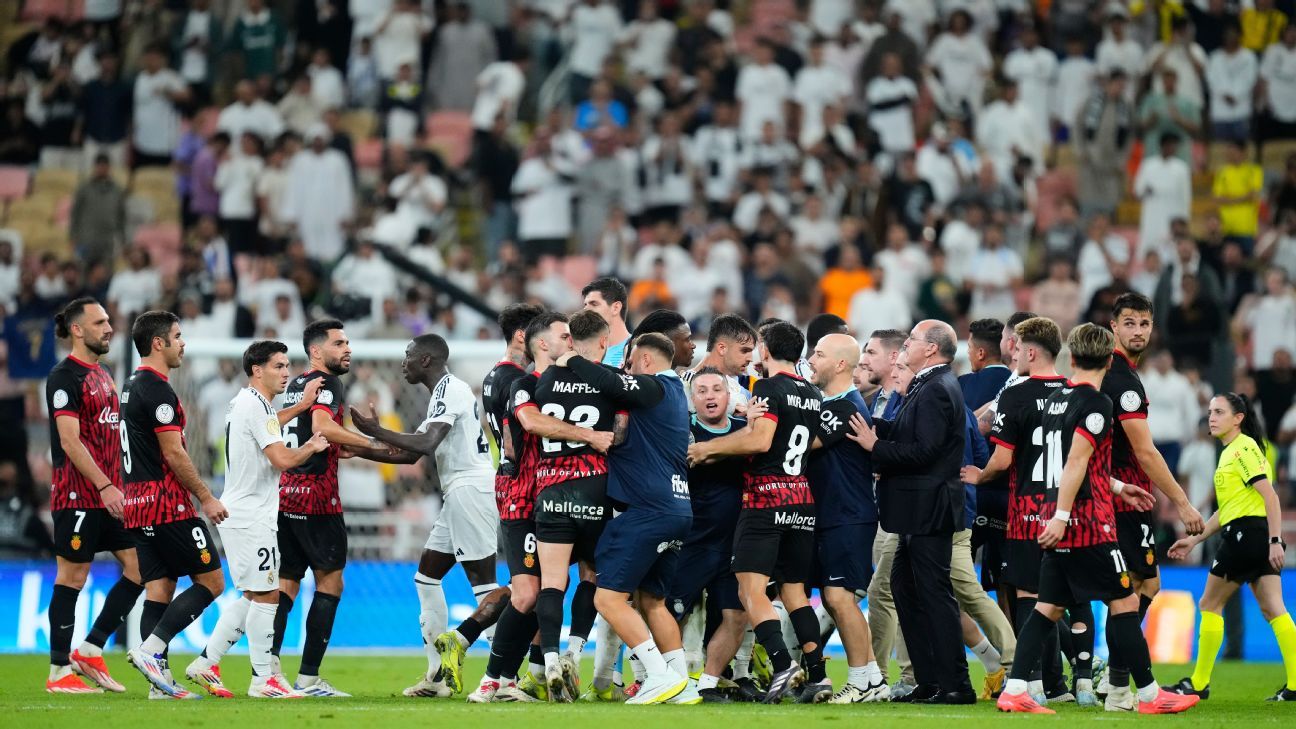Joey Lynch, Australia Correspondent
- Joey Lynch is a Melbourne-based sports journalist, AYA Cancer advocate, cynical centre-half and Zack Ryder mark. Primarily working on football, he has covered the Socceroos, Matildas, A-League, W-League, Y-League, the Australian grassroots and beyond.
Jun 10, 2024, 01:28 PM
PERTH, Australia -- After booking its place in the final rounds of World Cup qualification for the first time, Palestine's men's national team are hopeful that a peaceful resolution to the Israel-Hamas conflict will allow them to return to playing in their home nation once again.
Palestine play Australia in their final game of this phase of qualification in Perth on Tuesday evening, with both sides having already secured progression to the next phase.
Due to security concerns, Palestine haven't played a true home game since 2019, when they held Saudi Arabia to a 0-0 draw in front of a capacity crowd at the Faisal Al-Husseini International Stadium in the West Bank.
They had been set to host Australia in a qualifier in the West Bank last November, only for the outbreak of hostilities between Hamas and Israel to force the game to be moved to Kuwait, which, alongside Qatar, has hosted their subsequent 'home' games.
"Playing at home for any team is a great motivation," midfielder Mohammed Rashid said. "It's a strength, it's the biggest advantage any team will have.
"We're praying to God that sometime soon we will be able to do that, especially in the next round.
"[Not playing at home] is the hardest [thing] that we have faced so far.
"Dealing with it, we kind of got used to it now but it's never the same."
Palestine booked their place in the next round of qualifiers via a 0-0 draw with Lebanon last Thursday, a result that also earned them a place at a fourth straight Asian Cup.
Divided into three groups of six, the two group winners from this phase will qualify for the expanded 2026 World Cup, while the third and fourth-placed teams move into a fourth round in which two further automatic slots and a place in an intercontinental playoff pathway will be on offer.
"[World Cup qualification is] the dream, it's a big dream," Rashid said. "This is something that we're all looking forward to, to at least get close to that. Because it gives us a chance to raise the name of Palestine to the whole world, the World Cup is the biggest platform for this.
"It's football, everything is possible. But there's a lot of hard work that needs to be done.
"[But bringing joy] is our only motivation right now. This is what keeps us working on the pitch. There's nothing else to work for. Of course, we want to go to the next rounds but if we don't go to the next round, no-one is happy.
"People right now, this is the only thing they're watching; this the only thing that gives them hope - watching their national team advance and going into rounds that we have never made before.
"Even with the war going on, we see pictures of people watching the games in Gaza and all over Palestine. This gives us a lot of hope and hopefully, this will keep us going.
"But we pray that everything will stop and peace will prevail in that area."
As was the case the last time the two played, a select group of Socceroo players will donate a portion of their match fees to Oxfam's humanitarian efforts in Gaza, joined by Australian player's union, Professional Footballers Australia (PFA).
Donations will also be made to the UNHCR's aid efforts in the Cox's Bazar refugee camps in Bangladesh, where the Socceroos secured a 2-0 win last week.
"Through football, we have the privilege of seeing the world and in doing so we have an opportunity to attempt to have a positive impact both at home and abroad," Socceroo and PFA president Jackson Irvine told ESPN.
"The events in the Middle East have been horrific. The loss of so many civilian lives -- on October 7, and for the eight months since in Palestine -- has just been devastating.
"Right now, there are people that need immediate resources, immediate, potentially life changing support, and so that's where we need to direct our impact.
"While in Thailand and Bangladesh, we learned about the Rohingya and their situation in Cox's Bazar, which is the largest refugee camp in the world. The conditions there are really shocking -- it's overcrowded and they live in small shelters.
"Anything we can do to help is vital."
 (1).png)
 7 months ago
20
7 months ago
20















